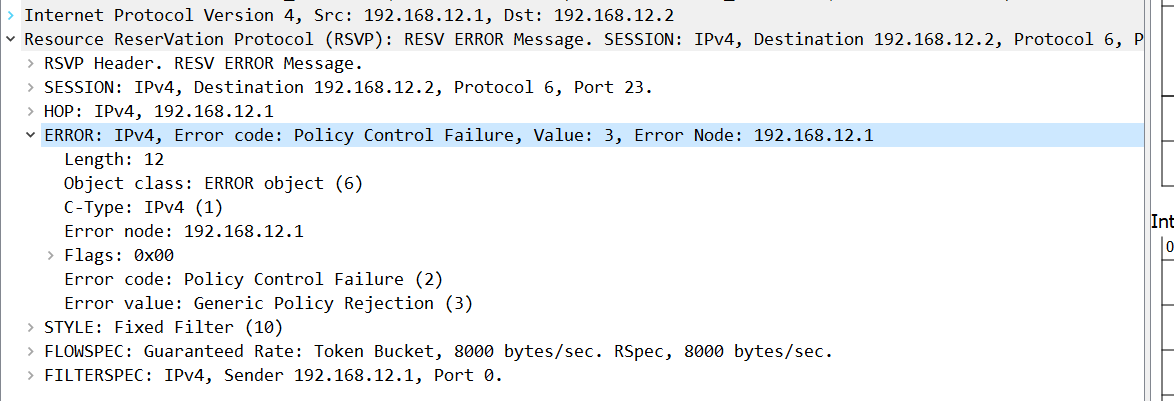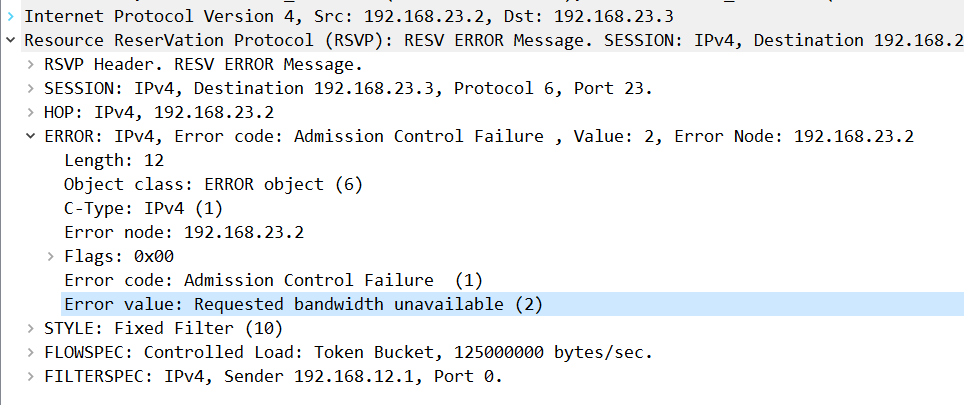Hello, everyone.
How often is RSVP used with QoS? From what I see, it can get quite complex to configure and doesn’t seem very scalable.
I also have a lot of questions about how RSVP works.
-

I have a one gig link here. This command basically says that I am enabling RSVP on the interface, but I am only allowing 100 kbps of it to be used for the purpose of RSVP, where a single flow cannot be higher than 50 kbps. -

If I understand this command right, this is telling the local device to make a reservation for a flow sourced from 192.168.12.1 destined to 192.168.12.2 that is using telnet, whereas the reservation should ask for 128 kbps of BW with the option to burst up to 192 kbps?. -
What exactly happens if the sender makes a reservation that doesn’t match what the destination has configured?
Sender:ip rsvp sender-host 192.168.12.2 192.168.12.1 TCP 23 0 128 64
Destination:ip rsvp reservation-host 192.168.12.2 192.168.12.1 TCP 23 0 FF RATE 64 128
I’ve switched the kbps around, and it turns out the reservation is still completed successfully, but the sender doesn’t get the full BW they asked for. They only get 64 kbps:

However, the sender seems to be complaining
What exactly does the ERROR message do, and what is the sender trying to say here? It keeps going on and on like this.
- I have 3 routers in the path. On each one, I’ve enabled rsvp, where I dedicated 100 kbps of the link’s bandwidth and allowed only 50 to be requested in one flow. I’ve made R1 request for a gigabit of bandwidth and configured the destination (R3) the same way (
ip rsvp reservation-host 192.168.23.3 192.168.12.1 TCP 23 0 FF LOAD 1000000 128)
Despite having only 50 kbps allowed, R3 seems to be happy to make the reservation

While R2 complains about it
- With RSVP, the hosts will send an RSVP message to make a bandwidth reservation. On Cisco IOS, the command to make a switch/router act as an RSVP host is ip rsvp sender-host. How would this be implemented on a real computer, though? And when would it reserve the bandwidth? Each time it tries to use the flow or even if it isn’t used?
- Are these bandwidth reservations valid even if we aren’t congested?
- What’s up with the “delay reservation”? I understand that you can reserve bandwidth, but delay?
 How does that work?
How does that work?
That’s all, thank you.
David



